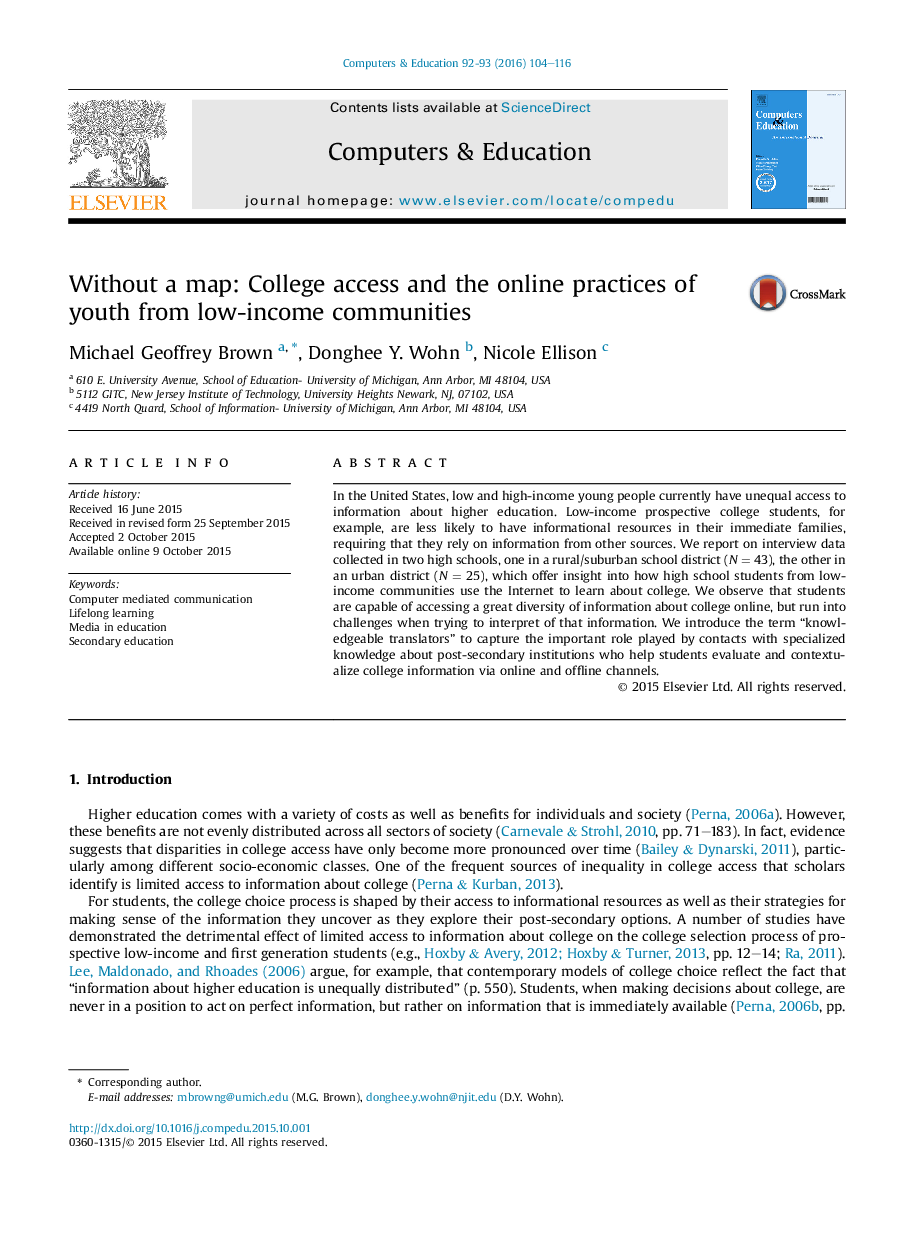| Article ID | Journal | Published Year | Pages | File Type |
|---|---|---|---|---|
| 348219 | Computers & Education | 2016 | 13 Pages |
•The role of online participation in college access is examined.•Students from low-income communities feel they have adequate access to online information.•Students used the Internet for information seeking and social support.•Students reported difficulty in evaluating and using online information.•Students accessed online and offline contacts for translating college information.
In the United States, low and high-income young people currently have unequal access to information about higher education. Low-income prospective college students, for example, are less likely to have informational resources in their immediate families, requiring that they rely on information from other sources. We report on interview data collected in two high schools, one in a rural/suburban school district (N = 43), the other in an urban district (N = 25), which offer insight into how high school students from low-income communities use the Internet to learn about college. We observe that students are capable of accessing a great diversity of information about college online, but run into challenges when trying to interpret of that information. We introduce the term “knowledgeable translators” to capture the important role played by contacts with specialized knowledge about post-secondary institutions who help students evaluate and contextualize college information via online and offline channels.
